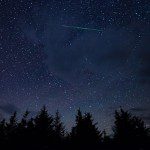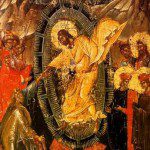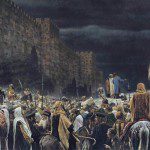 Remember that you are dust . . .
Remember that you are dust . . .
Yes, but it’s stardust. “We are all stardust” writes William Bryant Logan in his lovely book, Dirt. “Everything is stardust.” This is not romantic metaphor. The claim comes at the beginning of a long, beautifully detailed reflection on the life of the soil, of which also our bodies are made–mostly six elements: oxygen, hydrogen, carbon, nitrogen, calcium and phosphorus.
A colleague of mine, a chemistry professor, once gave an impressive chapel talk that began, literally, with a handful of dust. He held it out for general inspection. He named the six elements. “This is us,” he said. “This is the dust of which we are made. The handful of dust from which God made Adam.”
To remember this is not to deny the numinous or to diminish our value, but to lead us to radical amazement. We belong to all that is—not only to human community but to the earth and to the galaxy. We are matter and energy, body and spirit. And something burns in us that does not burn away. Describing the processes by which matter turns to energy and new life is produced in a pile of decaying plant debris, Logan writes, “All that is living burns. This is the fundamental fact of nature. And Moses saw it with his two eyes, directly.” Moses saw the bush, he insists, “as it really is. He sees the bush as all bushes actually are.”
Science does not dispel mystery. The best scientists I have known or read affirm that. “Behind every mystery we penetrate lies another mystery,” one of them said—another colleague whose pleasure in his field, biology, seemed very like the pleasure a poet takes in the delights and surprises of language.
I have been meditating on the words I heard yesterday as ashes were “imposed” on my forehead: Remember that you are dust, and to dust you will return. A friend who was very dear to me died yesterday, only hours after those words were spoken; I carried them into the day as I imagined her quiet going, surrounded by family and flowers and lit candles, thousands of miles away. I thought of her beautiful body, her exquisite voice, her laugh, and remembered, painfully, that she was dust and was returning.
But also more than dust—more, even, than stardust. I remember the final lines of a Hopkins poem where, having acknowledged the full, hard fact of mortality, that flesh falls “to the residuary worm” and “world’s wildfire” leaves “but ash,” he concludes,
In a flash, at a trumpet crash,
I am all at once what Christ is, since he was what I am, and
This Jack, joke, poor potsherd, patch, matchwood, immortal diamond,
Is immortal diamond.
Pure, concentrated carbon. The strongest mineral on earth. An image of what we are and will be that is entirely consonant with the sober reminder of Ash Wednesday: dust glittering in light, splaying and sending that light back to the eye of God who can see in us “what Christ is,” and be well pleased.












